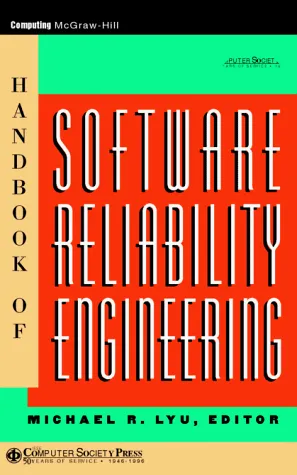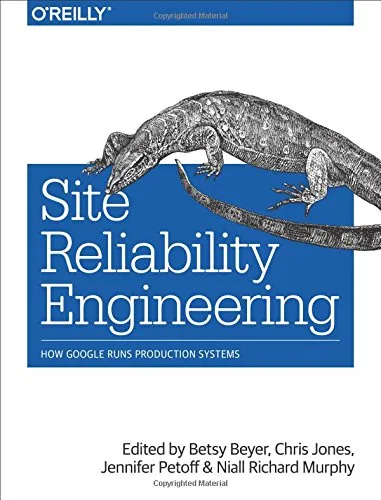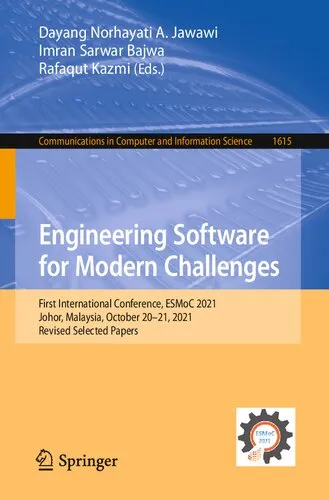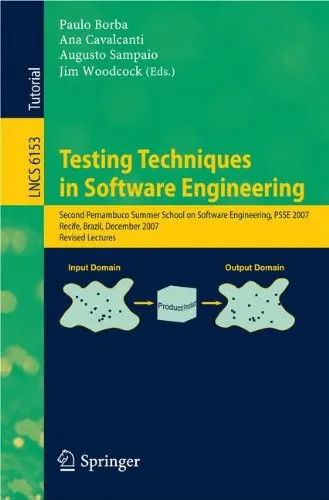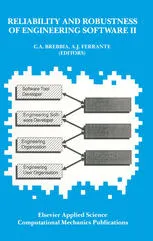Handbook of software reliability engineering
4.0
Reviews from our users

You Can Ask your questions from this book's AI after Login
Each download or ask from book AI costs 2 points. To earn more free points, please visit the Points Guide Page and complete some valuable actions.Related Refrences:
Introduction to the Handbook of Software Reliability Engineering
As software becomes an ever more integral part of daily life, the discipline of ensuring its reliability grows in significance. The Handbook of Software Reliability Engineering serves as a seminal resource for professionals, researchers, and students alike, offering a comprehensive overview of methodologies, theory, and practice in software reliability engineering.
Detailed Summary of the Book
The Handbook of Software Reliability Engineering stands as a comprehensive guide, dedicated to the principles and practices essential for enhancing software reliability. In its rich tapestry of chapters, the book addresses the foundational constructs of software reliability, strategies for assessing reliability, and methodologies for implementing software testing procedures that align with industry standards.
Through the contributions of experts in the field, the handbook delves into stochastic modeling of software systems, techniques for identifying software failures, and methods of implementing and assessing software reliability models. The book uniquely blends theory with practical applications, showcasing case studies and real-world examples to illustrate the effective integration of reliability practices within the software development lifecycle.
Key Takeaways
- Comprehensive coverage of software reliability concepts and techniques essential for modern software systems.
- In-depth exploration of various software reliability models and their real-world applications.
- Insights into advanced testing methodologies and tools designed to enhance software quality and predictability.
- Discussions on modern challenges and emerging issues in software reliability engineering, including considerations for next-generation technologies.
- Real-world case studies providing practical insight into the application of reliability engineering principles.
Famous Quotes from the Book
"Software reliability is not a one-time accomplishment but a continuous process of improvement and innovation."
"In software reliability engineering, understanding the nature of failures is more crucial than the ability to predict them."
"The real measure of quality in software is not mitigation but the ability to evolve without introducing faults."
Why This Book Matters
The Handbook of Software Reliability Engineering stands as an indispensable reference in the field of software reliability, primarily because it encapsulates decades of research, practice, and evolution in software engineering principles. As software continues to underpin critical systems in sectors ranging from healthcare to finance, the reliability of these systems directly influences societal functions and safety.
By addressing both theoretical constructs and practical applications, this handbook facilitates a nuanced understanding of how software reliability can be maximized, providing software professionals with the tools and insights necessary to adapt to an ever-evolving technological landscape. Its significance lies in its timeless principles and methodologies that remain relevant as new technologies emerge, making it a crucial resource for ensuring the sustainability and robustness of software in the digital age.
As industries prioritize quality and reliability, this handbook forms a foundation for advancing reliability engineering practices and for nurturing future generations of skilled software engineers who are equipped with a deep understanding of reliability challenges and solutions.
Free Direct Download
You Can Download this book after Login
Accessing books through legal platforms and public libraries not only supports the rights of authors and publishers but also contributes to the sustainability of reading culture. Before downloading, please take a moment to consider these options.
Find this book on other platforms:
WorldCat helps you find books in libraries worldwide.
See ratings, reviews, and discussions on Goodreads.
Find and buy rare or used books on AbeBooks.
1605
بازدید4.0
امتیاز0
نظر98%
رضایتReviews:
4.0
Based on 0 users review
Questions & Answers
Ask questions about this book or help others by answering
No questions yet. Be the first to ask!
